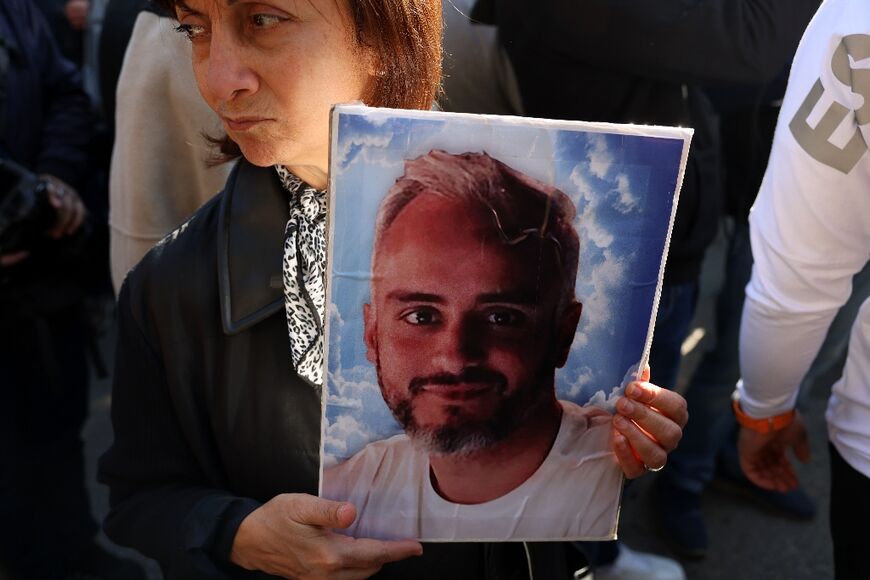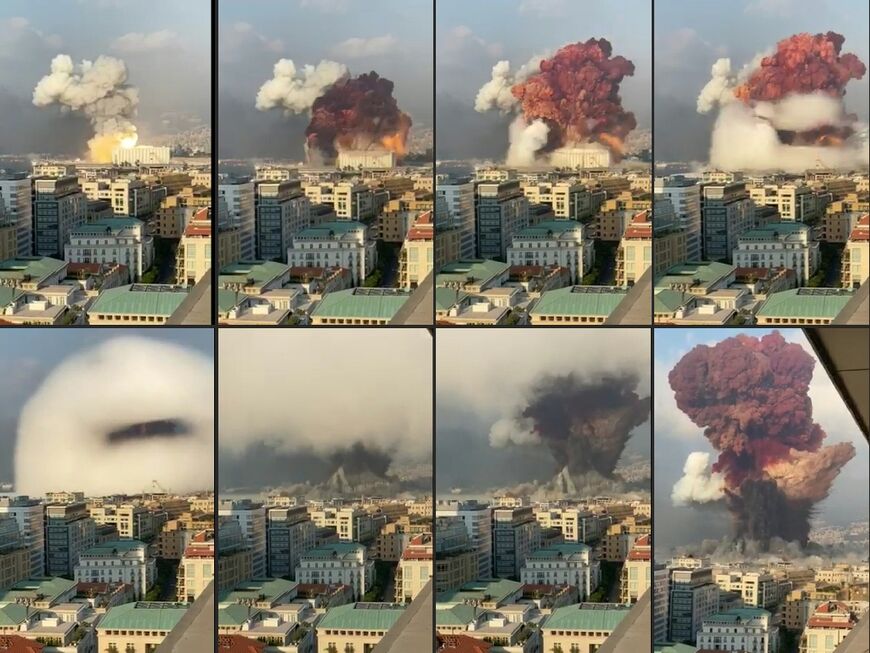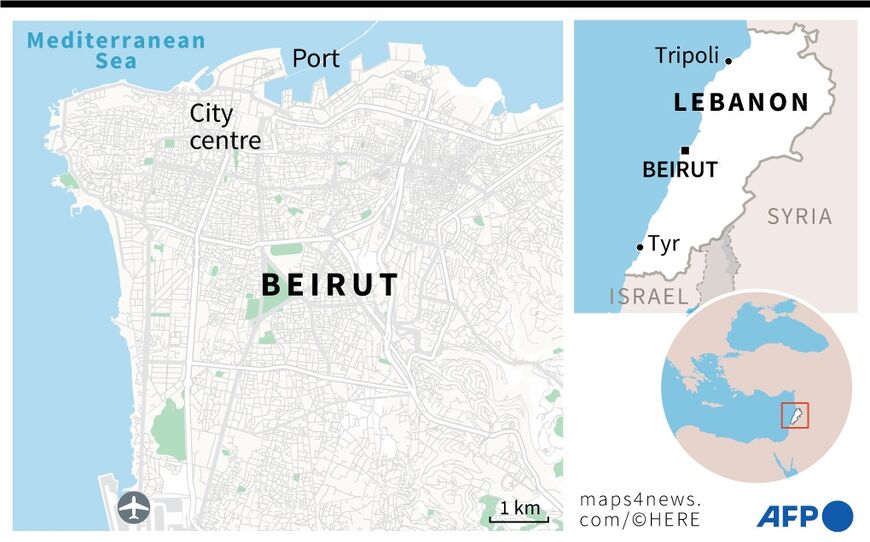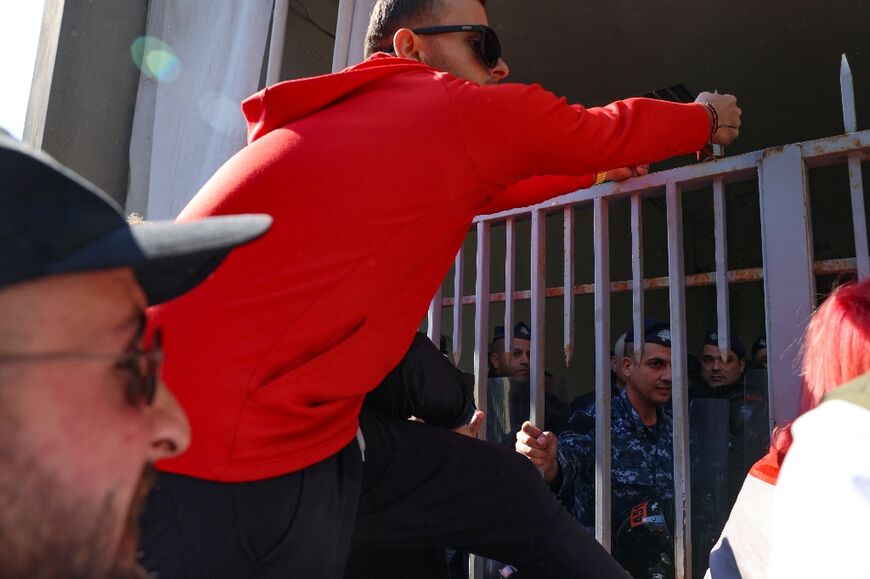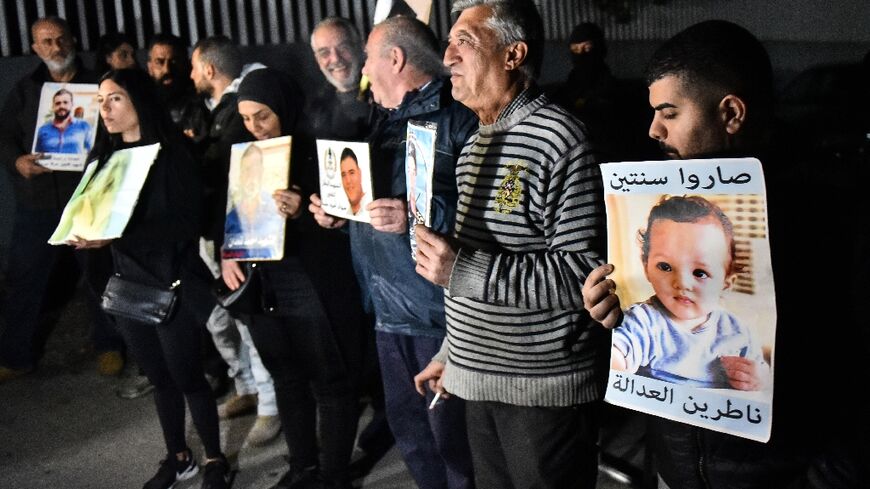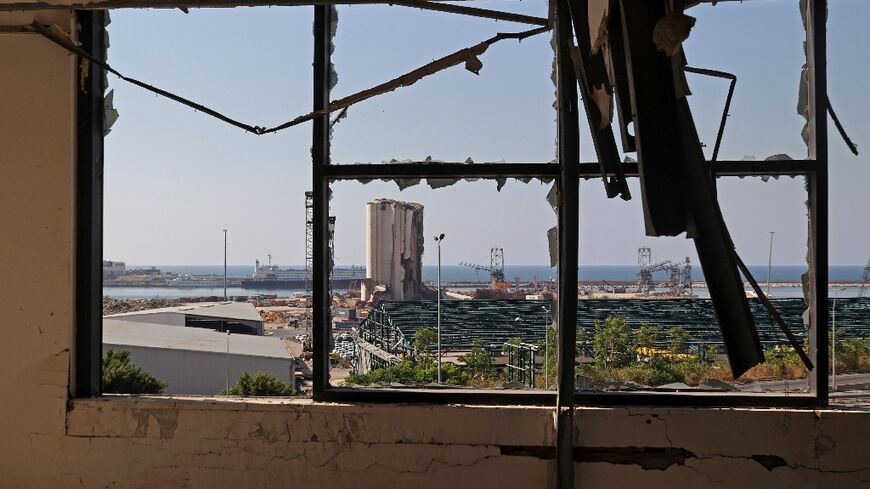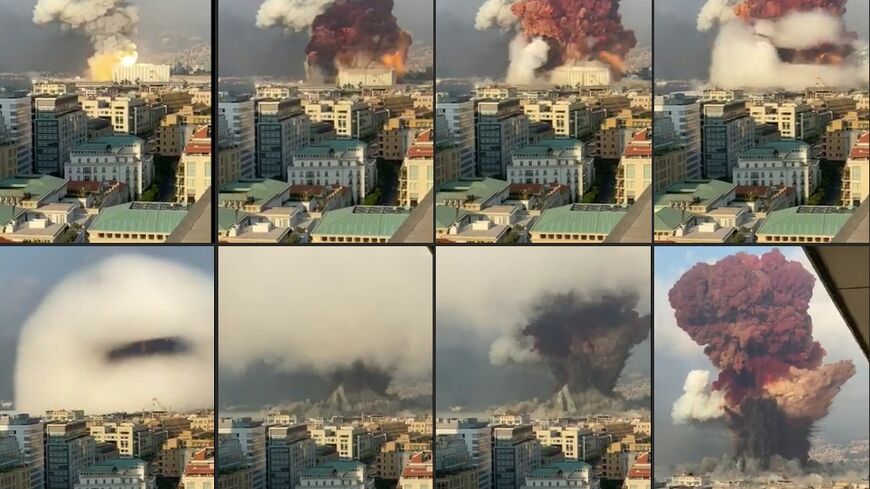Beirut blast victims' relatives rally for embattled probe judge

Families of the victims of the deadly 2020 Beirut port explosion rallied Thursday to support the judge who has resumed work on the politically-charged case in a daring challenge to Lebanon's entrenched ruling elite.
Experts have warned that the battle between investigative judge Tarek Bitar and top prosecutor Ghassan Oueidat, who has charged him with insubordination, will be a critical test for the faltering justice system of the crisis-hit Mediterranean nation.
Bitar this week defied Lebanon's ruling class to indict several powerful figures -- including Oueidat, the prosecutor general -- in connection with the blast, reviving a probe that was suspended for over a year amid vehement political pushback.
Oueidat in turn charged Bitar for insubordination and "usurping power", ordered the release of all those detained in the case, and slapped a travel ban on them and the judge.
Bitar was called for questioning on Thursday, a summons he did not attend.
Security was tight at the palace of justice in Beirut, where dozens of family members of the victims gathered "to support the investigation" led by Bitar, some carrying posters of those who died.
"We had faith in justice, but the mask has now fallen," said protester Abdo Matta, 54, who lost his son in the explosion.
"We will never stop, we want to know who killed our children."
Riot police scuffled with protesters who attempted to storm the palace of justice, Lebanon's state news agency NNA reported.
One of history's biggest non-nuclear explosions, the August 4, 2020 blast destroyed much of Beirut's port and surrounding areas, killing more than 215 people and injuring over 6,500.
Authorities said tonnes of ammonium nitrate fertiliser haphazardly stocked in a port warehouse since 2014 had caught fire, causing the explosion.
- 'Legal hysteria' -
No official has been held accountable, and relatives of the victims and rights groups have blamed the disaster on a political class widely seen as inept.
Lawmaker Melhem Khalaf, who represents 1,400 people affected by the blast, said he will meet Thursday with the justice minister and the chief of the Supreme Judicial Council.
The body was set to convene Thursday, but postponed its meeting indefinitely amid division between judges over whether to remove Bitar from the case.
Oueidat told reporters outside the palace that he would only retract his decisions "when the big mistake is corrected", referring to Bitar resuming his investigation.
Khalaf called on the justice minister to "find solutions" so the probe can proceed, describing the situation as "judicial and legal hysteria".
Bitar was forced to suspend his probe for 13 months after a barrage of lawsuits, mainly from politicians he had summoned on charges of negligence.
Lebanon has a history of political assassinations, and authorities are now "entirely responsible for the judge's safety", the families warned, referring to the move against him as a "coup d'etat".
A defiant Bitar told AFP Wednesday he will not step down from this case, adding that the chief prosecutor "has no authority" to intervene.
The judicial arm-wrestling between Bitar and Oueidat risks deepening Lebanon's mounting woes.
"The future of this case is fraught with danger," said legal expert Paul Morcos.
The complex case is subject to "immense political pressure that Lebanon's justice system cannot surmount, creating this huge rift," he added.
- 'Total collapse' -
The powerful Iran-backed movement Hezbollah has repeatedly called for Bitar's dismissal, and this week expressed support for Oueidat.
Hezbollah lawmaker Ibrahim Al Moussawi described Oueidat's decision as "a step in the right direction to restore confidence in judges and the judiciary after it was destroyed by some of its members."
But Samy Gemayel, a lawmaker opposed to Hezbollah, warned the judicial battle "could lead to the total collapse of the justice system", and called on citizens to defend Lebanon against "a mafia and an armed militia".
Among those ordered released by Oueidat were dual American-Lebanese citizen Ziad al-Ouf, who his lawyer Sakher al-Hashem said had already "arrived in the United States, and will not return to Lebanon".
A judicial official said that the United States had lobbied for his release.
On Wednesday, Human Rights Watch and Amnesty International called on the United Nations Human Rights Council to "urgently pass a resolution to create an impartial fact-finding mission" into the port explosion.


